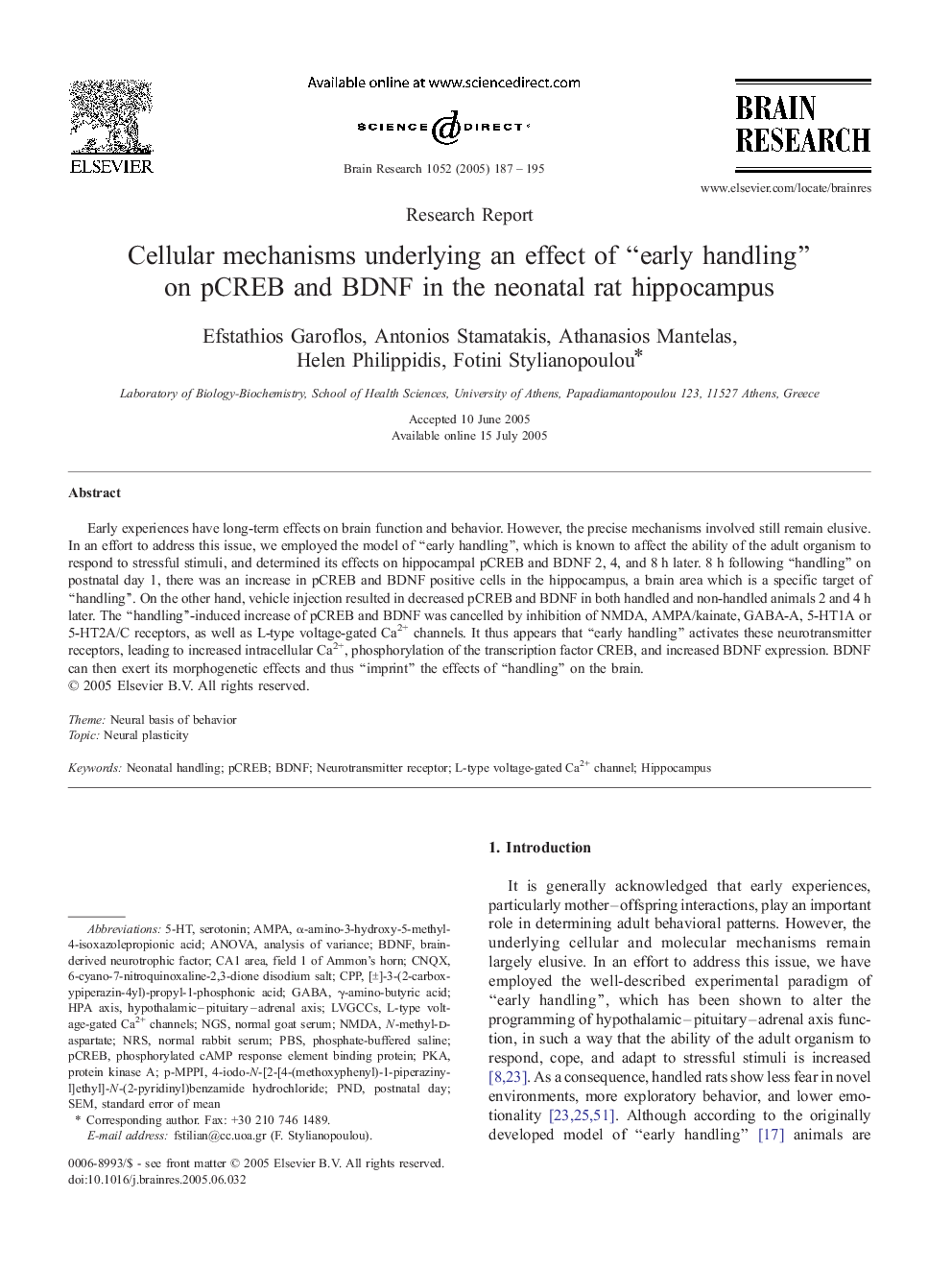| Article ID | Journal | Published Year | Pages | File Type |
|---|---|---|---|---|
| 9415891 | Brain Research | 2005 | 9 Pages |
Abstract
Early experiences have long-term effects on brain function and behavior. However, the precise mechanisms involved still remain elusive. In an effort to address this issue, we employed the model of “early handling”, which is known to affect the ability of the adult organism to respond to stressful stimuli, and determined its effects on hippocampal pCREB and BDNF 2, 4, and 8 h later. 8 h following “handling” on postnatal day 1, there was an increase in pCREB and BDNF positive cells in the hippocampus, a brain area which is a specific target of “handling”. On the other hand, vehicle injection resulted in decreased pCREB and BDNF in both handled and non-handled animals 2 and 4 h later. The “handling”-induced increase of pCREB and BDNF was cancelled by inhibition of NMDA, AMPA/kainate, GABA-A, 5-HT1A or 5-HT2A/C receptors, as well as L-type voltage-gated Ca2+ channels. It thus appears that “early handling” activates these neurotransmitter receptors, leading to increased intracellular Ca2+, phosphorylation of the transcription factor CREB, and increased BDNF expression. BDNF can then exert its morphogenetic effects and thus “imprint” the effects of “handling” on the brain.
Keywords
p-MPPIL-type voltage-gated Ca2+ channel5-HTPBSpCREBN-methyl-d-aspartateCPPNMDANGSPNDNRSpKaAMPA6-cyano-7-nitroquinoxaline-2,3-dione disodium saltBDNFγ-amino-butyric acidα-amino-3-hydroxy-5-methyl-4-isoxazolepropionic acidanalysis of varianceANOVAstandard error of meanNeonatal handlingpostnatal daynormal goat serumnormal rabbit serumSerotoninCNQXBrain-derived neurotrophic factorNeural Basis of BehaviorPhosphate-buffered salineHPA axishypothalamic–pituitary–adrenal axisSEMCA1 areaHippocampusprotein kinase ANeural plasticityGABAneurotransmitter receptor
Related Topics
Life Sciences
Neuroscience
Neuroscience (General)
Authors
Efstathios Garoflos, Antonios Stamatakis, Athanasios Mantelas, Helen Philippidis, Fotini Stylianopoulou,
